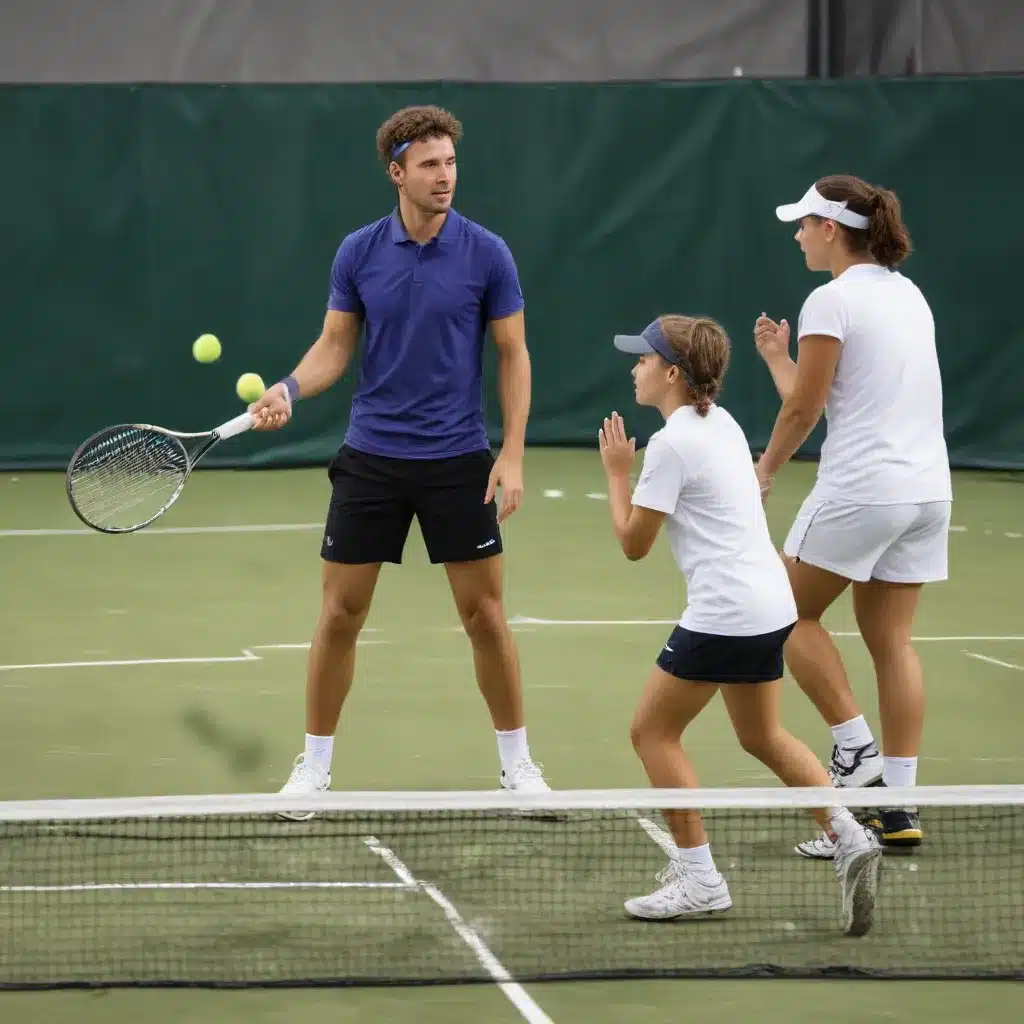
In the bustling and dynamic world of tennis, the role of coaching education has become increasingly crucial in ensuring the delivery of high-quality instruction to aspiring players in London. As the sport continues to evolve, both in terms of technical advancements and regulatory compliance, it is essential to examine the impact of comprehensive coaching programs on the overall quality of tennis training and development.
Regulatory Compliance and Best Practices in London Tennis
The tennis landscape in London is governed by a robust set of regulations and guidelines, designed to ensure the safety and wellbeing of both players and coaches. These regulations, which are regularly updated by the relevant authorities, cover a wide range of areas, including facility management, equipment standards, and coaching qualifications.
One of the key aspects of regulatory compliance in London’s tennis industry is the mandatory certification of coaches. All individuals engaged in providing tennis instruction, whether at private clubs, public facilities, or community-based programs, must possess the appropriate coaching credentials. These credentials are typically earned through recognized training programs, which equip coaches with the necessary knowledge and skills to deliver safe, effective, and inclusive lessons.
In addition to coach certification, London’s tennis regulations also address the maintenance of court surfaces, the provision of adequate protective equipment, and the implementation of emergency response protocols. By adhering to these guidelines, tennis facilities and coaching providers can ensure that their services meet the stringent standards set by local authorities, thereby mitigating risks and providing a safe and enjoyable experience for all participants.
The Role of Coaching Education in Player Development
Effective player development is at the heart of any successful tennis program, and the quality of coaching plays a pivotal role in this process. Comprehensive coaching education programs in London have been instrumental in shaping the way tennis instruction is delivered, catering to the diverse needs and skill levels of players across the city.
These educational initiatives not only focus on the technical aspects of the sport, such as stroke mechanics and tactical strategies, but also address the importance of holistic player development. Coaches are trained to consider the physical, mental, and emotional well-being of their students, ensuring that the training experience is both challenging and rewarding.
Research has shown that a coach’s ability to foster a supportive and motivating environment can have a significant impact on a player’s long-term engagement and improvement. By incorporating principles of sports psychology, nutrition, and injury prevention into their coaching methodologies, London-based instructors are better equipped to guide their students towards achieving their full potential.
Moreover, the emphasis on continuing education within the local tennis community encourages coaches to stay up-to-date with the latest advancements in training techniques, equipment, and player development strategies. This commitment to ongoing learning ensures that players in London benefit from the most current and effective coaching practices, ultimately enhancing their overall tennis experience.
Advancements in Tennis Technology and Equipment
The world of tennis has witnessed remarkable technological advancements in recent years, and London’s tennis community has embraced these innovations with enthusiasm. From smart rackets that provide real-time performance analytics to advanced ball-tracking systems that offer precise stroke analysis, the tools available to coaches and players have become increasingly sophisticated and data-driven.
These technological advancements have not only enhanced the training experience but have also played a crucial role in improving player development and optimizing coaching strategies. By leveraging the insights provided by these cutting-edge tools, coaches in London are better equipped to identify areas for improvement, tailor their instruction to individual needs, and track the progress of their students more effectively.
Furthermore, the proliferation of online and mobile-based resources has made it easier for coaches to access a wealth of educational content, including instructional videos, webinars, and virtual coaching platforms. This accessibility has empowered London’s tennis community to stay connected, share best practices, and continuously refine their coaching methodologies, ultimately benefiting the players they serve.
Cost Considerations and Accessibility in London Tennis
While the importance of quality coaching and advanced tennis technology is widely recognized, it is crucial to address the issue of cost and accessibility within the local tennis landscape. Tennis, as a sport, has traditionally been associated with a certain level of exclusivity, and ensuring that coaching services and training programs are financially accessible to a diverse range of participants is a key priority for London’s tennis community.
To address this challenge, many tennis facilities and coaching providers in London have implemented tiered pricing structures, offering a range of options to cater to different budgets. This includes the availability of group classes, subsidized community programs, and scholarship opportunities, which aim to make quality instruction more accessible to players from various socioeconomic backgrounds.
Additionally, the city’s network of public tennis courts and community-based initiatives has played a vital role in democratizing the sport, providing affordable access to both recreational and competitive players. By leveraging these resources, aspiring tennis enthusiasts in London can engage with the sport without the burden of prohibitive costs, allowing them to explore their passion and potentially develop into skilled players.
Conclusion
The impact of coaching education on the quality of tennis instruction in London is undeniable. By ensuring regulatory compliance, fostering comprehensive player development, embracing technological advancements, and addressing cost and accessibility concerns, the city’s tennis community has laid the foundation for a thriving and inclusive sporting landscape.
As the sport continues to evolve, the commitment of London’s tennis coaches to ongoing learning, innovation, and accessibility will be essential in nurturing the next generation of players and elevating the overall standard of tennis instruction. Through their dedication and expertise, the city’s tennis community remains poised to inspire and empower aspiring players, ultimately solidifying London’s reputation as a hub for tennis excellence.
For those interested in exploring the world of tennis in London, I encourage you to visit the Cliff Richard Tennis website, which offers a wealth of resources and information on local coaching programs, training facilities, and upcoming events.

